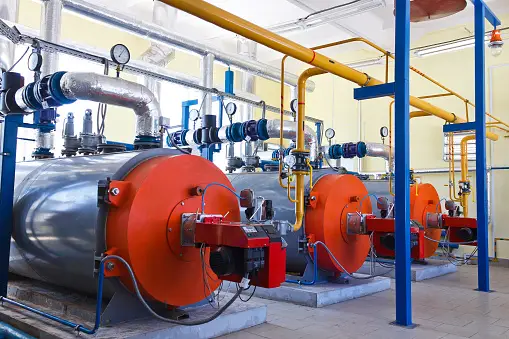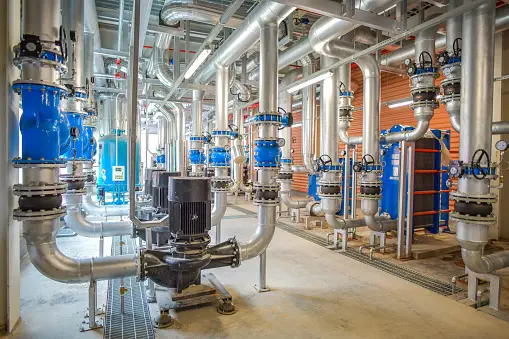Introduction
In an era marked by concerns over climate change and the depletion of finite resources, industries around the world are increasingly turning their attention towards enhancing energy efficiency. Among the various technologies driving this effort, industrial boilers have emerged as a cornerstone of the movement, revolutionizing the way energy is consumed in manufacturing processes. This article delves into the pivotal role industrial boilers play in fueling efficiency and explores the innovative approaches that are reshaping energy consumption across diverse sectors.
The Evolution of Industrial Boilers
Industrial boilers have been a staple of industrial processes for centuries, dating back to the steam engines of the 18th century. However, it’s the recent advancements in technology that have propelled these systems into the forefront of energy efficiency initiatives. Traditional boilers were notorious for their wastefulness, losing a significant amount of heat through exhaust gases and radiation. Modern industrial boilers have undergone a remarkable transformation, integrating cutting-edge materials, control systems, and combustion technologies to drastically reduce energy losses.
Efficiency through Innovation
- High-Efficiency Combustion: One of the central innovations driving the efficiency revolution in industrial boilers is advanced combustion technology. New designs enable precise control over the combustion process, optimizing the fuel-to-air ratio and minimizing excess air in the combustion chamber. This not only results in more complete combustion but also reduces emissions of harmful pollutants.
- Condensing Boilers: Condensing boilers represent a breakthrough in energy efficiency. These boilers recover heat from the exhaust gases by condensing the water vapor contained within them. By harnessing this otherwise wasted heat, condensing boilers can achieve efficiencies of up to 98%, a significant improvement over traditional boilers.
- Combined Heat and Power (CHP) Systems: Industrial facilities are increasingly adopting CHP systems, also known as cogeneration. These systems integrate the production of heat and electricity, maximizing energy utilization. The waste heat generated during electricity production is captured and used for heating purposes, further enhancing overall efficiency.
- Digitalization and Automation: The integration of digital technologies and automation has led to “smart” boilers that can adjust their operations based on real-time data. Sensors and advanced control algorithms optimize combustion, fuel usage, and maintenance schedules, ensuring peak performance and minimal downtime.
Applications Across Industries
Industrial boilers are versatile and find applications in various sectors, including:
- Manufacturing: Boilers are essential in industries such as food processing, paper production, and chemical manufacturing, where heat is required for various processes.
- Power Generation: Boilers play a critical role in power plants, where they produce steam to drive turbines and generate electricity.
- Textiles: Textile industries rely on steam for dyeing, drying, and other processes, making boilers crucial for energy-efficient operations.
- Refineries: Boilers are integral to oil refineries, providing the necessary heat for the distillation and conversion of crude oil into various products.
Environmental and Economic Benefits
The widespread adoption of energy-efficient industrial boilers offers a range of benefits:
- Reduced Emissions: Efficient combustion and reduced fuel consumption result in lower emissions of greenhouse gases and other pollutants, contributing to improved air quality and a smaller carbon footprint.
- Cost Savings: Higher efficiency translates to lower fuel consumption and operational costs, positively impacting a company’s bottom line.
- Resource Conservation: By making better use of fuel resources, energy-efficient boilers contribute to the conservation of fossil fuels and extend their availability for future generations.
- Regulatory Compliance: Many regions have established strict emissions and efficiency regulations. Upgrading to modern boilers helps industries meet these requirements and avoid penalties.
Conclusion
Industrial boilers have come a long way from their historical origins, now standing as beacons of energy efficiency and innovation. As industries continue to recognize the importance of sustainable practices, these boilers are proving to be instrumental in reducing energy consumption, lowering emissions, and enhancing overall operational performance. With ongoing advancements in technology and a growing commitment to responsible energy use, industrial boilers are poised to play a central role in shaping a more sustainable and efficient future for industries worldwide.





